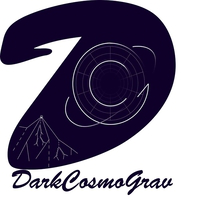Speaker
Description
Present and upcoming neutrino experiments can have considerable sensitivity to dark sectors that interact feebly with the Standard Model. We consider dark sectors interacting with the SM through irrelevant portals that are motivated on general principles. We derive bounds on such scenarios by considering decays of dark sector excitations inside the neutrino detector, placed downstream from the target. Our approach is model agnostic and applies to a wide range of dark sector models, both strongly and weakly coupled. In this approach, the dark sector is characterized by two scales: $\Lambda_\text{UV}$ (mass of mediators generating the portals) and $\Lambda_\text{IR}$ (mass gap of the dark sector). At intermediate energies, far away from these scales, the theory is approximately scale-invariant. This allows the calculation of production rates independent of the threshold corrections, although some mild model- dependent assumptions are needed. We look at various dark sector production processes relevant at neutrino experiments such as meson decays, direct partonic production, and dark bremsstrahlung. We consider representative experiments from past (CHARM), present (ICARUS, NOvA, Micro- BooNE), and upcoming future (DUNE-MPD), and compare their reach to existing bounds from high energy experiments (LHC and LEP) and dedicated future LLP experiments (SHiP). We find that the upcoming DUNE-MPD can probe $\Lambda_\text{UV}$ in the TeV range, and $\Lambda_\text{IR}$ in the 0.1-1 GeV range, covering parts of parameter space currently inaccessible in high energy experiments and fixed- target/beam-dump experiments, and is comparable to future LLP experiments. In general, future neutrino experiments can be an efficient probe of dark sectors, providing complementary as well as new reach in parameter space.
Faculty position
PhD Student
| Topic Field | Particle Physics |
|---|

